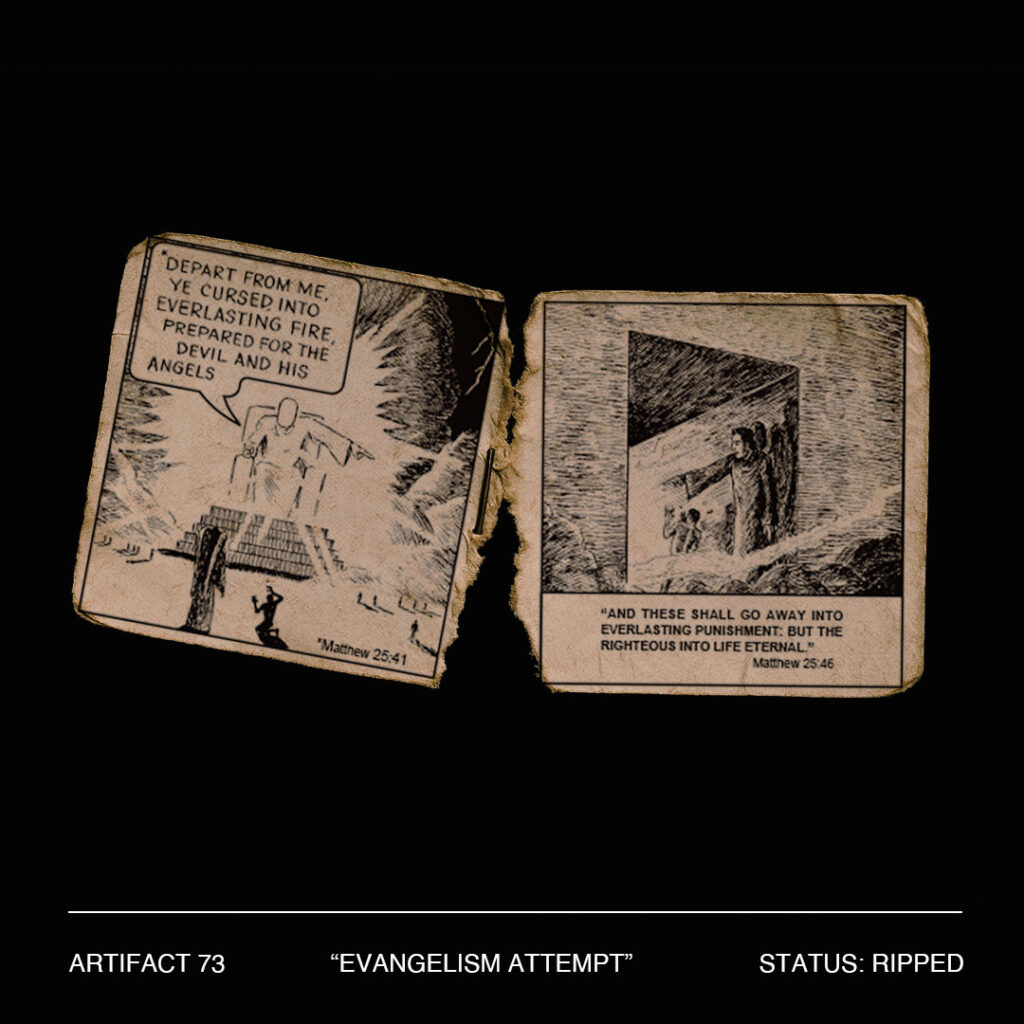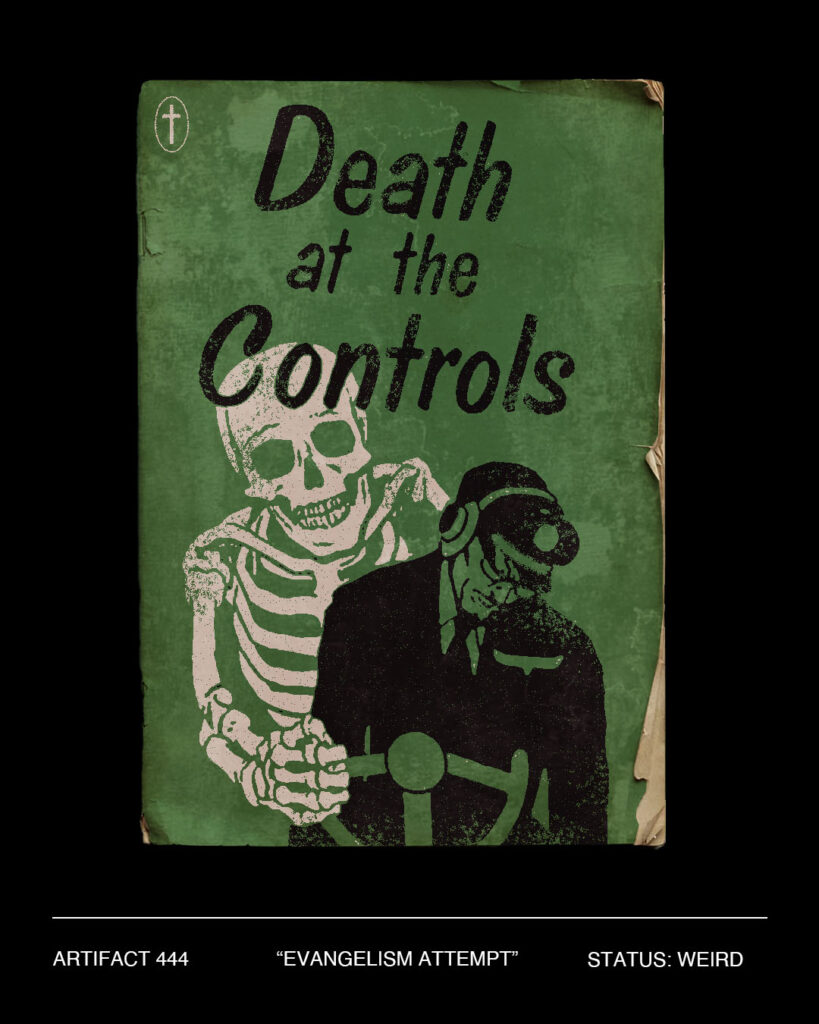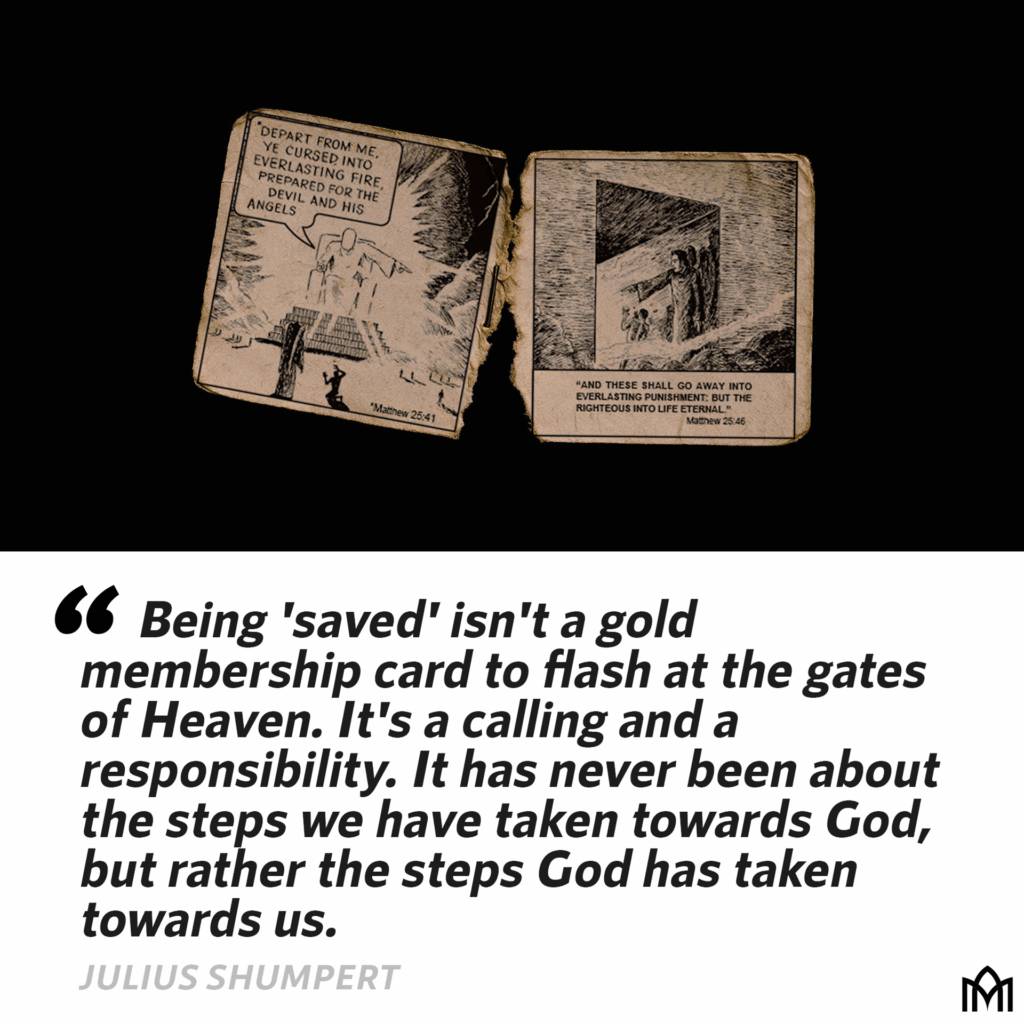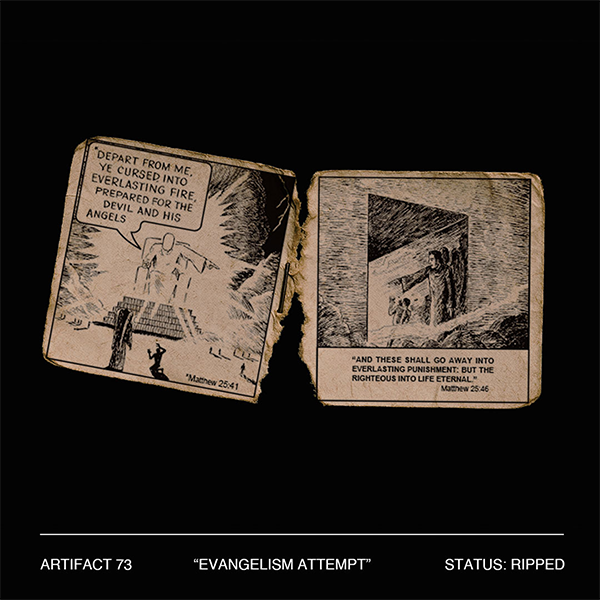Saved?: What Will You Do?
You’re dead. It probably happened in one of those dramatic ways Pentecostal preachers love to warn you about—a car accident, maybe a plane crash. Now, you’re drifting through a long, dark tunnel toward the most brilliant light you’ve ever seen. The light refracts and dances in rainbow flecks all around you.
You pass through, weightless, until—thud—your feet land on something soft, like a cloud. Your eyes adjust, and you realize you’re in a line.
“NEXT!” someone barks.
You shuffle forward.
Behind a tall golden podium stands a crackly-voiced, white-haired fisherman who looks like he’s been here since forever.
“NAME?!” he demands.
You tell him.
He flips through some pages, chuckles to himself, then leans forward, looking down at you: “AND WHY SHOULD WE LET YOU IN HERE?”
Oh no! The question you hoped wouldn’t come. But wait—you’re a proud member of the Master’s Hands Tree of Life Non-Denominational Assembly of God Church Youth Group. You’ve sat through the Revelation summer series. You were born for this moment.

© Julius Shumpert (@cosmicchrist_ and @saintjuliusart on Instagram).
Being “saved” has always been part of Christianity’s DNA. When I was a kid, John 3:16 was quoted so often, I didn’t even realize it was from the Bible. Every hymn about “going to Heaven someday,” every sermon about “getting right,” every whispered hope of tired saints through the centuries… all pointing to this ultimate reward.
But what if our attitudes towards salvation aren’t quite right? What does it mean to be saved?
One thing we can cross off the list is a purely psychological definition.
In a 2013 interview with Rachel Held Evans, pastor and theologian Greg Boyd spoke about our skewed view of faith. Boyd called out the way we treat belief as a mental gimmick, like the Lion in The Wizard of Oz chanting, “I do believe, I do, I do, I do believe!” We assume that a person’s faith is only as strong as it is free from doubt, and that God is somehow pleased by this striving for a perfectly “strong” (Read: doubt-free) faith. But that turns faith into superstition—something you keep alive by thinking positive thoughts, holding on tight, and willing yourself into certainty.
Humans hate not knowing. We look for patterns, symbols, and meaning in the silence. It’s our mind’s survival mechanism—a way to navigate uncertainty. The early Christians in Thessalonica were no different. They were being persecuted by Rome, and people in their community were dying, whether by martyrdom or simply old age. In 1 Thessalonians 4:13–18, Paul writes to them from the road. He paints them a picture of Jesus as the faithful Lord (not Caesar), coming down from heaven to meet with his people. Jesus remains in control, even when the future seems dark and uncertain.
Paul addresses similar concerns in the church in Corinth (See 1 Corinthians 15). The Corinthian church was also worried about death and endings. Paul points them to the Resurrection of Jesus, not only as a historical reality, but as the reason we even gather as the Church. Paul emphasizes that the Resurrection of Jesus declares that there is something bigger than death. Truth is solid. Love runs deeper.
Whatever unknown you’re facing, Jesus is greater still.

© Julius Shumpert (@cosmicchrist_ and @saintjuliusart on Instagram).
Jesus remains in control, even when the future seems dark and uncertain. Whatever unknown you're facing, Jesus is greater still. Share on X
But what of heavenly rewards? Jesus did speak about that in Matthew 6:4, 6, 19-21, as a part of his Sermon on the Mount. But if eternal rewards are the only reason for faith–a cosmic way of insisting, “What’s in it for me?”—then we’ve missed something. There’s an old saying in the Black church that speaks to this line of thinking: “If He didn’t do anything else, it would’ve been enough!” God has already done more than enough in saving us. Yet in God’s generosity, there’s more, still deeper promises yet to come.
Perhaps the point of being saved isn’t securing a spot in the afterlife, but rather stepping into radical freedom and forgiveness here and now, so that we can share it with the world.
Paul writes in Colossians 1:21 that we were once “alienated… in our minds,” but now we’ve been reconciled. That reconciliation isn’t merely a status symbol. It’s an invitation. We’re invited to be part of the healing of the world. Being “saved” isn’t a gold membership card to flash at the gates of heaven. It’s a calling and a responsibility. Salvation is rooted in our ability to trust the foundation of reality itself, not on our own strength or will-power. It has never been about the steps we have taken towards God, but rather the steps God has taken towards us.
///
The point of being saved isn't securing a spot in the afterlife. It's stepping into radical freedom and forgiveness here and now, so that we can share it with the world. Share on X




